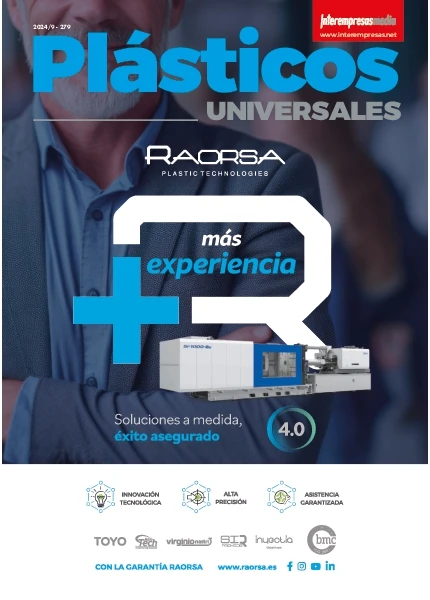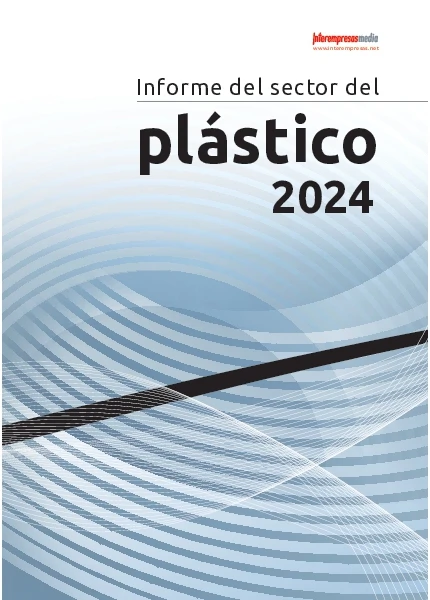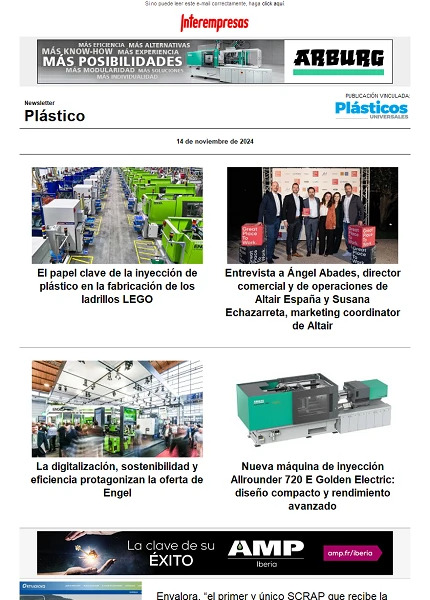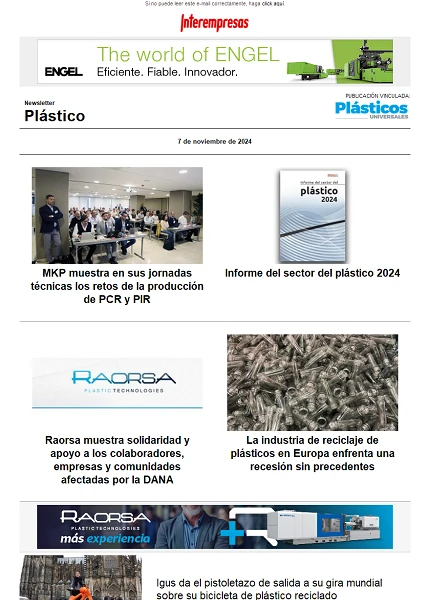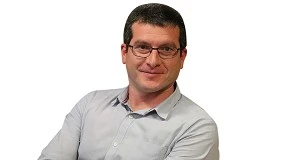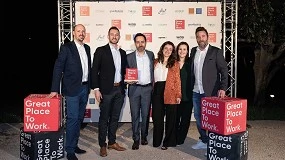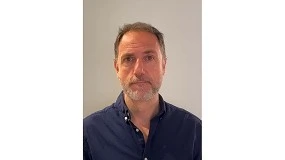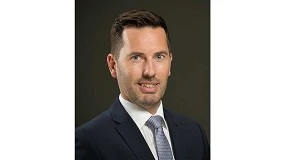Interview Joan Francàs, vice-president and general director of Siemens Industry Software for Spain and Portugal
21 February 2012
We begin with a a balance of 2011...
We finish the exercise (that we close in September) with the best results of our history. We operate in Spain from the 94, so we are speaking of a long route. Besides, if we take into account that we split of a world-wide record —that was the one of the past year— and our forecasts are to beat it this year with a growth of 6% more than income and on 17% of profits (in 2011 close with 27% more than income and 72% of profits). So it seems that in 2012 we will go back to beat a new record.
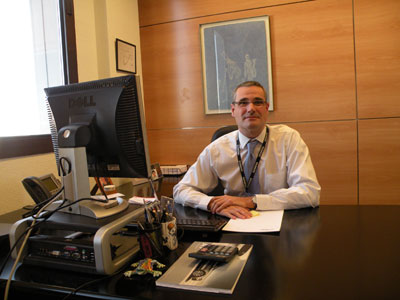
Which is the formula?
When I assumed the responsibility of CEO in the company, in summer of 2008, were already in full crisis. So the first challenge was not to solve a problem of business, that was not the case, but restructure the company. On the other hand, also we decide a strategy of crash to ‘sail' during this period of crisis. Like this, some of the strategic decisions taken then are us giving now these results, showing that they were the correct. For example, we decide to work with big companies, greater that those that in that moment had like installed base. This type of companies, of the sectors in that we move us we, as they are automotive sector, aerospace and machinery, export, with what the Spanish crisis and the fall of internal demand affects them relatively little. And although no all our customers export, yes does it a big part of the installed base. It is the case of Seat, that has hired a ferry to export 100% of the production of Martorell to China. In machine-equal tool. Nowadays, if we depended on the internal demand, the panorama would be very distinct. The technology of Siemens favours the competitiveness and therefore it promotes this Spanish exporting sector being more competitive in the international market. The cycle favours us to all, we to our customers to the hour to sell better his products and his external business, to us.
We are speaking of sectors besides that, in general, are to the last in technology. However, there are sectors where costs more go in like provider?
Now the speech is very simple: it is necessary to explain them to our customers that the one who do not go out of this crisis reinforced technologically and, therefore, more competitive and was better that his competition, will not go out. We offer to our customers be more competitive and better, technologically speaking. The classical Spanish model to work and be very competitive to base of labour costs is obsolete.
Always there is the one who will manufacture cheaper...
Claro. Besides, the majority of the Spanish companies have restructured , reducing his strength of work, with what afterwards, hardly can be more competitive reducing the costs because you no longer have this possibility. If the staff before was of 10.000 people and now are 8.000, as the 2.000 that are missing it is necessary to cover them of some way, as with technology. This gives the opportunity to continue producing and of optimum way. And if today already we see how the companies that triumph are the technologically advanced, in the next years will see it still more. No only in sectors like automotive sector or aeronautical sector component manufacturing sector component manufacturing, traditionally intensive regarding technology, but in any one. All what was related with automotive sector, aeronautical sector component manufacturing sector component manufacturing, aerospace... For example in moulds, that we englobamos inside automotive sector. But no only in Spain, also in Portugal, where the sector of the mould is very important and has suffered a lot in the two last years, but that now is recovering market because it has attained to do better moulds and compete with Asia.
Precisely, to give to know these advantages that can contribute Siemens, realise periodically presentations of new applications and updates of the technologies NX and Solid Edge. It exists greater interest now by part of the companies that when ‘all sold '?
Yes, the true is that yes. And it is curious because, after all, NX or Solid Edge at the end are CAD, and the technology CAD carries in Spain a lot of years, of Siemens and of ours competitors. Like this, any company that needed a CAD does years already has it, is a mature technology that go updating.
Where himself notice more impact is in what we call PLM, the software Teamcenter, that culturalmente is very different, much more innovative and very little implanted in Spain and whose penetration is very low still with regard to other countries (in Europe does more than 10 years that this technology is implanted successfully).
From this point of view really a lot of companies contact with us to include a project PLM inside his budgets, something that 3 years ago did not occur. Open a line of budget for a project with PLM was, does a time, unthinkable. Few posed do this type of investments to give the technological jump, with explained exceptions, and now instead, this type of projects become the norm . It is a new way to think to improve and optimise the resources. Perhaps it is hard but the crisis has allowed to a lot of companies stop to think how give him feasibility to the company.
Perhaps also it has changed the mentality and see that it is an investment...
Is that I always speak of investment. If somebody considers that spend 200 or 300 one thousand is to spend them makes a mistake. It is necessary to invest in the business.
And one of his advantages also is his ‘usabilidad'?
Exist two levels of use. One is the one of engineer, the one who designs the product and has to handle the mathematics, geometry, surfaces, complex assemblings... And nowadays in all the faculties of engineering of Spain use the softwares for the engineering of design. So they have some knowledges of computer tools of design for the use of the CAD. But for other solutions like PLM is not like this and precisely one of our aims is to attain that the universities give also like asignatura PLM.
So, for the moment, yes is necessary a determinate level of learning to the hour to implant it in the companies. Although it is necessary to take into account that, after all, is a software with his functionalities but that requires of a change of mentality regarding the internal work in the company. Teamcenter Does not leave to be a big database that allows to work on-line to the different departments of the company, even the different headquarters and international delegations of a multinational, speeding up the updates, optimising the work shared and reducing possible errors.
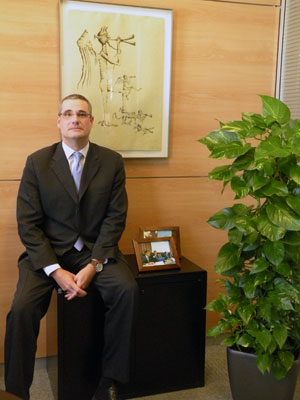
In the moment to think in new updates of NX or Solid Egde, until which point influence the customers, that are those who go it to use?
Is very important, because they are those that indicate us which functionalities want to or need. We have a ‘hot line' international through the cual pipe the demand of new functionalities. It treats of a service by which, in addition to the maintenance and update of versions, can realise queries to the team of Siemens Industry Software, what to his time serves us to detect these needs. All this serves to collect lacks, suggestions, etc. that in a lot of cases incorporate in the new versions. It is, in some way, a return of the investment realised by part of our customers, continue investigating, adapt the products to his needs and, therefore, follow improving.
Besides, it is necessary to take into account that some sectors have regulations or rules very restrictivas, as it is the case of the railway industry, automotive sector or aerospace, and go varying. And our customers have to adapt, needing innovative products that allow them work faster. And one of our lemmas is not leaving never a customer neglected. We are a big company but are near of them, keeping a permanent contact.
This so narrow relation, allows them do presentations home of a customer?
Do it constantly. Our customers are our best sellers. We carry ours customers to visit other customers that work in the same segment, so much in the national field like international, if it interests them. And, of the same way, ours customers participate in events organised by Siemens, explaining how use Teamcenter, Tecnomatix, NX and Solid Egde.
Precisely the fact to be a multinational allows them know distinct markets and ways to work. They envy something of other markets?
If we fix us, only am speaking of industry and basically of three sectors: automotive sector, aerospace and machinery. As this are not it doing of the all very because in the world there is a lot of more industry, textile for example, especially in Spain, or of Big Consumption (feeding and CPG), the energetic sector... In which we have not gone in still or no with sufficient strength. In the sector CPG are not by business decision, but in others like the one of the power are it to us posing. Also it is necessary to take into account that, partly, we have not entered us in them because the success of the sectors where are more consolidated has copado all our resources. And it is necessary to adapt carefully our structure and our reality of business to the current circumstances something that, in Spain in particular, is difficult because they change very quickly so that if we take a decision of investment can go back against in a short period of time.
Are being wary but yes is true that our penetration in determinate sectors is mejorable.
They will be his aims to half – long term?
Sure enough, are decisions that will go taking and that go to analyse how take and when.
Anyway, and in spite of belonging all to the EU, Europe is not a federal union of States, and the German market differs a lot of the Greek, the Italian or the Spanish. How it reflects this difference?
Germany is the 4ª world-wide economy. Which is the difference between them and we? More than 50% of the German companies are big multinationals, wants to say companies that invoice more than 100-200 million euros and have presence all over the world. This is more than 50% of his industrial fabric. How many Spanish multinationals exist, that are not banks? Germany is a country of big corporations and therefore of big technological decisions, that drag big investments and innovation to world-wide level. Besides, they have an industrial fabric, another 50%, of small companies. But small company in German term is not small company in Spanish term.
Spain has some multinationals, but very few, whereas the big part are small and medium enterprises. This supposes some advantages but it is necessary to have clear that ‘struggle in territory of trench'. That is to say, small company, investments relatively small, a lower wish by the innovation until does a time...
A small market, would not have to be more dynamic that one of greater dimensions? Faster in the taking of decisions?
In Spain is not like this. In other markets of dimensions resembled the Spaniard, like Switzerland or Austria, yes are many faster, but is because culturalmente are ‘German'. Both countries are resembled Spain regarding his industrial fabric, but his dynamic character is very different. Although these differences are changing and here is betting more by the innovation. We expect that this mentality do not change once happen the crisis, that this interest for improving constantly keep and that the new hornadas of professionals, that go out and very prepared of our universities, find in the labour market a place, that do not have to go out to the foreigner to look for an opportunity.
And the professional learning?
Here the thing changes. If I compare with a market that know well as it is the German, there, no all the world has to be engineer, no all have to go through the university, but yes go out with a professional learning, vital also for the industry of the country. And in Spain, traditionally, has despised this field, with which, all the won by up loses with a labour strength little qualified. Another important factor is to have access to practical learning in companies. Stays of 3 months carrying out a project, learning another language and, besides, winning in personal independence.


